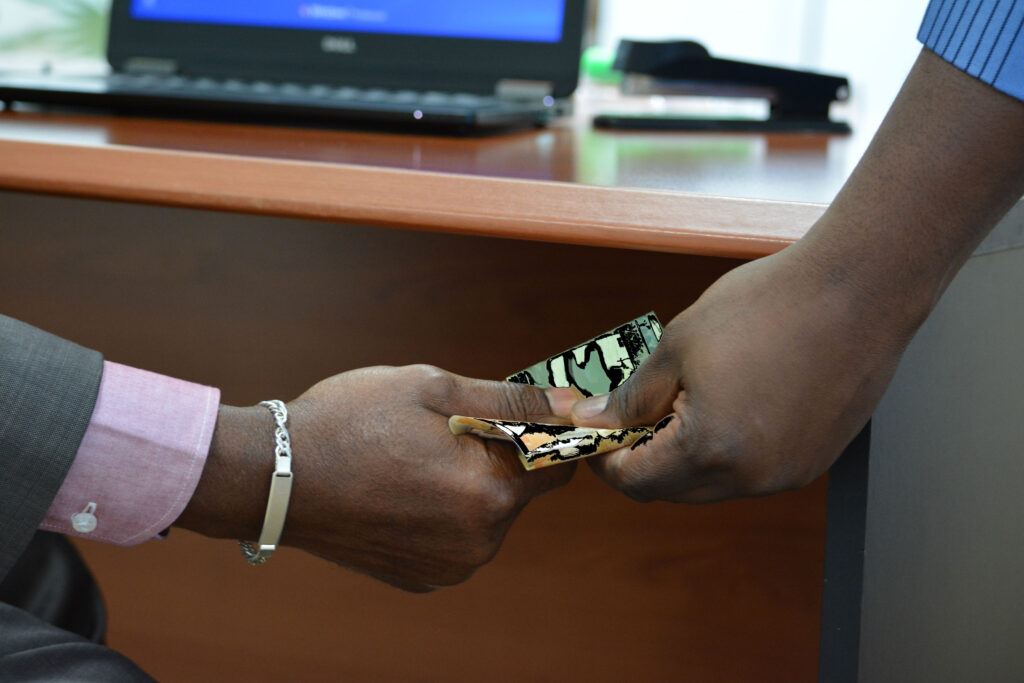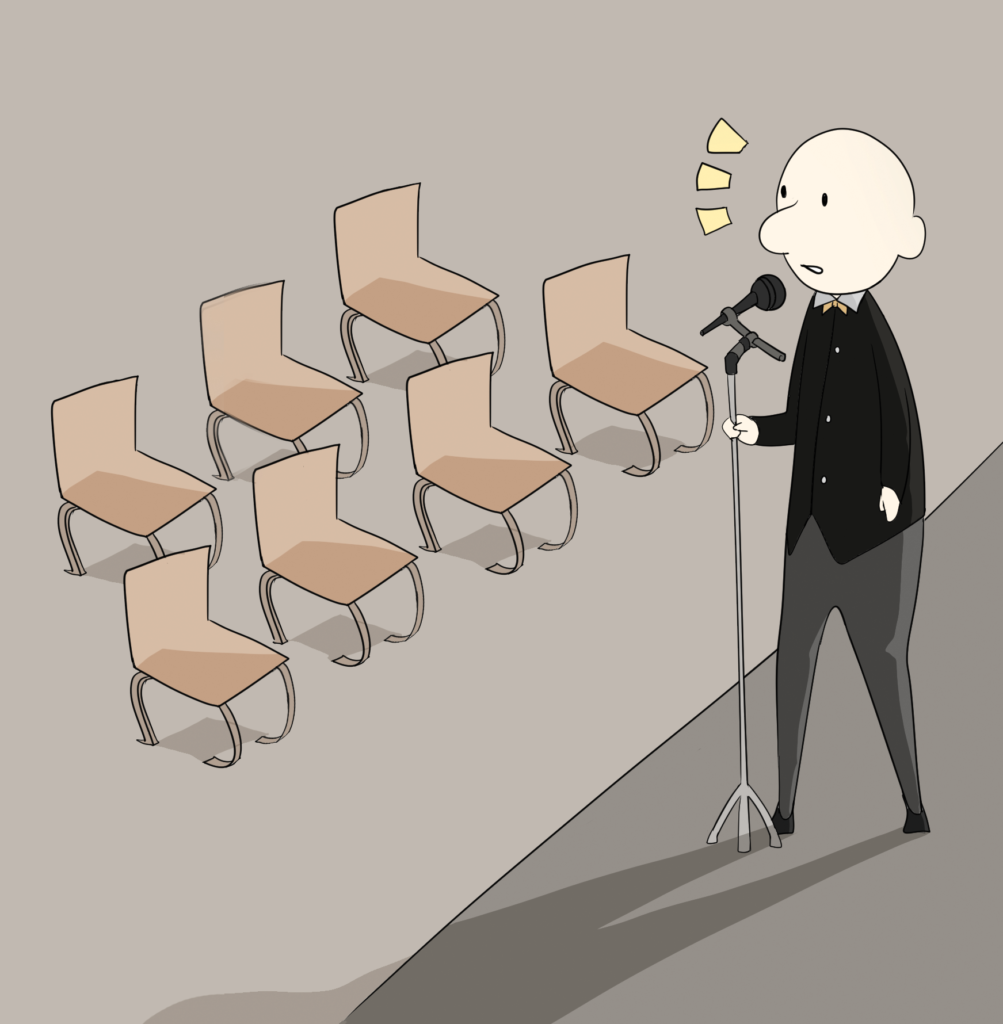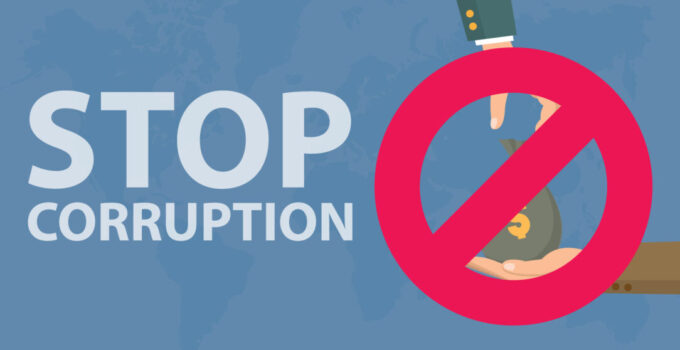The following speeches are for students regarding the serious issues that arise from corruption. Corruption can exist at every level of business and public office and is a scourge, especially on the developing world. Please use the following speeches for your public speaking.
Dear Staff and Students,
The Collins Dictionary defines corruption as: “dishonesty and illegal behavior by people in positions of authority or power”.
In my opinion, this description is a very narrow definition of corruption. It omits to say ‘illegal behavior’ often in the pursuit of self-interest or financial gain.
Rife in developing countries, corruption can have serious consequences on public projects designed to improve life for citizens. At best when large theft has been committed, a useful public project and inflation of the value of project contracts can cause long delays. At worst the vital public project is canceled because necessary funds have been siphoned away to corrupt people in positions of power. Moreover, in some cases, the corrupt official will resort to assault or even murder to keep the crime hidden.
Let us look at an example of a recent corruption case and its consequences in Indonesia.

img source: undp.org
An Indonesian court, in April 2018 sentenced Setya Novanto, the former speaker of Indonesia’s parliament and former chairman of the Golkar party, Setya Novanto to 15 years in prison for his part in the theft of $170 million of public money.
Prosecutors said Setya Novanto was among about 80 officials, several companies and even lawmakers who used the introduction of a $440 million electronic identity card system in 2011 and 2012 to steal more than a third of the funds.
The Judge said Novanto benefited by millions of dollars of public money by abusing the authority and opportunities available to him because of his political position.“The defendant has consciously committed a criminal act of corruption,” said the chief judge, Yanto.
Shockingly, The anti-corruption commission’s lead investigator in the scandal was attacked with acid after leaving dawn prayers in April last year, leaving him blind. No arrests were ever made according to AP news.
The final result for the public were delays in the project and inflation of the value of project contracts, allowing the money to be stolen the court said.

img source: akamaihd.net
The good news is Indonesia is changing. An iron will exists among the people to end this serious crime and stop valuable funds from being stolen from worthwhile causes. When driving at snail’s pace through the congested streets of the countries’ capital, taxi drivers will often tut tut and bemoan the corruption that has robbed the city of a commuter sky train. The story is a common listen for any passenger in a Jakarta taxi. However, spirits seem to rise when the same taxis caught in congestion, creep their way past the giant office of anti-corruption that dominates the skyline.
For decades in Indonesia, corruption was as part of life as fried rice and nasi goreng stands. Indonesia’s International’s corruption initial ranking, in 1995, was dead last. Last year, it scaled the rankings to 89 out of 180: the first time it ever broke into the top half of the chart.
What lessons can Indonesia teach the rest of us?
In 2002, the country established the Corruption Eradication Commission, which goes by the local acronym, KPK. It is this building, painted in colors of the national flag that lifts the mood of drivers stuck in jams. The new body runs aside the police and the attorney general’s office and is empowered to investigate and prosecute any public official for any type of corruption. A conviction rate of nearly 100 percent, has followed and over 1,000 corrupt public officials have been arrested.
Why was it so successful? Extraordinary powers have been given to the new body: agents have even been allowed to wiretap senior judges without a license.
Indonesia has proved to itself as a nation they can stop the rot and have fostered public opinion into positive action and now are a good example to nations that suffer from widespread corruption.
Corruption Speech 2, For Students

img source: peak.ca
Dear Staff and Students,
Over 1 trillion dollars is stolen from developing nations every year according to AlJazeera news. This huge amount is hard to comprehend. We can barely imagine what it looks like. It is easier to imagine what such a huge sum could do for the infrastructures of developing nations. Its easier to imagine clean wide roads empty of smog-filled traffic jams, while gleaming commuter trains take people back and forth to their offices. Or large, modern hospitals replacing current makeshift medical outposts in run down neighborhoods.
Stolen money usually deprives normal people of infrastructure designed to improve their daily lives. The money ends up in the pockets of the few who use their positions of power to steal and become wealthy.
To understand corruption, we must look into the likely causes:
- Personal greed and a climate of ignoring religious morals or the law among colleagues and friends. Ignorance of right and wrong.
- A weak judicial system that allows criminals to get away with corruption allows for the temptation of crime.
The knowledge that the police are very corrupt and justice would be hard to find, allows the crime to spread. - Tradition among fellow citizens and the feeling of, ‘If people in office are corrupt to me I should regain my loss by being corrupt to others’.
- Mafia protection in some states breeds despair, where the citizen feels helpless, and a habit of corruption spreads through a population.
- There is a difference between countries with a democratic past, that traditionally prosecute corruption,
and former socialist countries, where corruption in the state in some cases became a “thank you” and was the norm in the form of a gift for a service. - Vast developing countries with poorly educated people and poor economic infrastructure are much more likely
to suffer from corruption. - The desire for power and influence. Witnessed most around election time when politicians seek power. High power industrialists are more likely to provide money to pay for campaigns in return for favors. In some countries, this makes its way down the chain to the illiterate poor who are bribed for votes.
- High inflation: High inflation economies where government officials are on low salaries causes an atmosphere
where some politicians will resort to accepting bribes and unregistered gifts.
What is the answer? Corruption can never be completely eliminated in the same way other serious crimes can not ever completely be removed from society. However corruption can be controlled, cases reduced and perpetrators heavily punished. Promoting good conduct in political office, positions of power by enforcing laws should be a cornerstone of rooting out the problem.
Corruption can ruin a nation’s reputation and reduce opportunities of investment that every country needs. It can damage the chance of overseas opportunities. Corruption is a problem all countries have to tackle, starting with homegrown solutions.
Corruption Speech 3, for Students

img source: inserbia.info
Dear Teachers and Students,
Corruption is the stealing of money by illegally using a position of power to do so.
In many countries, cases of corruption can be found in public office, no more so than in developing nations with weak infrastructures. Latin American countries are some of the worst affected by corruption.
In a survey of more than 17,000 people in 18 of the region’s countries published this week by Transparency International, a German watchdog, 85% said that corruption at government level was “a big problem” in their country, 53% think it is getting worse and 57% said it is not being tackled well enough.
In Mexico, María del Rosario Robles Berlanga a Mexican politician who served as Secretary of Social Development in the cabinet of Enrique Peña Nieto was arrested in August 2019 accused of massive fraud. Prosecutors’ claim over $250 million destined for welfare programs under her tenure were unaccounted for. She faces seven years in prison.
In Peru, Susana María del Carmen Villarán de la Puente is a center-left politician in Peru, a previous presidential candidate, and the lady in a position of power, in municipal elections in 2010, became the first woman to be elected Mayor of Lima. She was known to speak up for human rights, security and gender equality but now is accused of taking illegal campaign money from Odebrecht, a Brazilian construction firm. Her cellmates include Keiko Fujimori, the leader of the opposition, who faces a similar accusation. Meanwhile, Emilio Lozoya, the former boss of Pemex, the Mexican state oil company, is on the run in Europe from corruption charges.
A newly released research program aims to help countries in the region find a proper route to combating and reducing corruption.
Authors of the Capacity to Combat Corruption Index hope their report will help show successful strategies to reduce corruption.
Roberto Simon, senior director of policy at AS/COA said: “If we put countries in a comparative perspective, we can look at particular aspects at where countries are successful and other challenging areas where countries can do better,”
Marking with a scale of 0-10, the index assessed eights countries’ ability to fight corruption. It examines countries’ abilities to deter, uncover and punish corruption, instead of looking at real levels of corruption.
Chile was judged to be top, thanks to what the index authors say is an ability to maintain relatively higher educational levels and a more stable and functioning democracy. The country received a score of 6.66. Venezuela was predictably bottom with a meager score of 1.71.
The report is designed to reveal to the public which sectors, from legal systems, education to political systems need addressing in their countries to best fight corruption.
When do we see examples of corruption in so many countries students ask the same question: what can be done about corruption?
The answers can be complex and wide-ranging but experts agree on a number of solutions.
The first point to address is effective law enforcement which is essential to ensure those who are corrupt are punished and the weak institutions allowing corruption to breed are investigated. A good example of this is Indonesia’s Corruption Eradication Commission. With powerful new access to politicians, the commission has brought over 1000 politicians to justice.
Successful enforcement approaches are supported by a strong legal framework, law enforcement branches and independent and effective court systems, that work quickly and efficiently. Legal cases can take years in countries like Venezuela.
Financial management and clarity is a key component in reducing corruption. The disclosure of budget information is important. it prevents waste and misappropriation of resources. A good example is Transparency International of Sri Lanka that promotes transparent and participatory budgeting by training local communities to comment on the proposed budgets of their local government.
Allowing for public scrutiny. Community monitoring schemes have in some cases contributed to the detection of corruption, reduced leakages of funds and held those acting illegally to account. The improved quantity and quality of public services has been the much-desired result.
As citizens what can each of us do about corruption? You can ask to see a criminal lawyer if you live where they are trustworthy. I personally like the new movement rising in India among the youth, to reveal corrupt officials and to say no.
The “zero currency” note is a visual aid that encourages people to say “no” to corrupt officials who demand a bribe and to reveal where and when bribes are demanded. The concept originated in Mumbai where it was known as the “zero rupees” movement. The novel approach has proven to be a formidable tactic in fighting corruption. The approach works simply: when asked for a bribe, a note is handed to the briber with a bill that resembles real currency but is actually fake paper money that includes anti-corruption messages.
Students can ask politicians at election time to sign anti-corruption pledges or to take steps to fight corruption. Placing them in the spotlight can force them to accept the issue.
Students and parents in developing countries can fight corruption at a more local level. The first way they can fight corruption is in schools and universities, by starting anti-corruption initiatives, for example, by ensuring competitive procurement of school resources, accurate accounting, opposing uncompetitive, secrecy in the hiring of teachers. They can watch for the bending of research results for personal gain. In this way, universities can increase the efficiency of their operations provide better services and cut unnecessary costs.
A final piece of advice for citizens fighting corruption. Write to your local newspaper.
“I don’t believe newspaper reporters can substitute for a district attorney, but a newspaper has a very valid investigative role. Newspaper reports on corruption in government, racketeering and organized crime conditions can be very helpful to your communities and the whole country.” Robert F. Kennedy.




